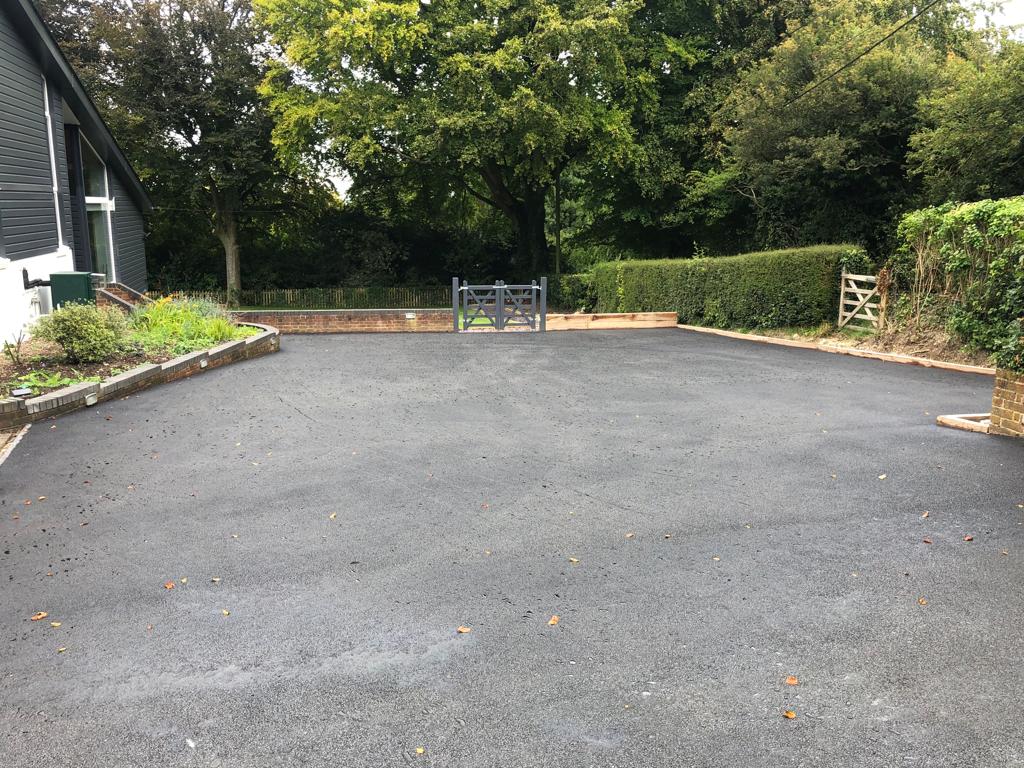Bitumen spray sealing is a time-tested road surfacing method that’s widely used across Australia, particularly in regional and semi-urban areas. Known for its efficiency, cost-effectiveness, and versatility, spray sealing remains a preferred choice for many councils, property owners, and developers. But what exactly does the process involve, and how long can it be expected to last?
At Lithgow Road Tek, we specialise in asphalt and bitumen surfacing services across Lithgow, NSW. In this article, we break down the bitumen spray seal process—explaining the key layers, how it’s applied, and what factors contribute to its longevity.
What Is Bitumen Spray Seal?
Bitumen spray sealing involves applying a layer (or layers) of hot bitumen to a prepared surface, followed immediately by a layer of aggregate (stone). The aggregate is then embedded into the bitumen using a roller. Once compacted and cured, the finished surface provides a durable and weather-resistant layer that protects the underlying pavement.
This method is commonly used on rural roads, access tracks, shoulders, driveways, and resealing projects due to its quick turnaround and effective performance in lower-traffic environments.
The Layers Involved in a Spray Seal
Spray sealing isn’t a one-size-fits-all solution—different projects may require a single or double seal depending on traffic loads, existing surface conditions, and long-term performance goals.
Single Coat Seal
- Bitumen binder layer sprayed directly onto the prepared surface
- Aggregate layer spread immediately over the binder and rolled in
Double Coat Seal
- First bitumen layer
- First aggregate layer
- Second bitumen layer
- Second aggregate layer
A double coat adds strength and flexibility, making it more suitable for roads that carry moderate traffic or are exposed to higher wear.
How Spray Sealing Is Applied
At Lithgow Road Tek, we follow a strict, proven process to ensure your spray seal surface performs to the highest standard. The key steps include:
Surface Preparation
Existing pavement is cleaned and repaired if needed
Base course is compacted and graded for proper drainage
Any loose material or moisture is removed to ensure optimal adhesion
Binder Application
Hot bitumen is evenly sprayed using a calibrated bitumen sprayer
Application rates are adjusted to suit surface texture, temperature, and traffic expectations
Aggregate Spreading
Clean, pre-sized stone aggregate is immediately spread over the binder
A uniform spread rate ensures consistent coverage and skid resistance
Rolling and Compaction
Pneumatic or multi-tyred rollers compact the aggregate into the binder
Multiple passes ensure proper embedment and surface stability
Curing and Finishing
The road is swept to remove any loose aggregate after curing
Line marking or traffic control signage is applied as required
How Long Does a Spray Seal Last?
A professionally applied spray seal can last between 8 to 12 years, depending on a range of factors. While it doesn’t match the lifespan of full-depth asphalt, it provides excellent value for cost-conscious projects where rapid completion and functional durability are required.
Factors That Affect Longevity
- Traffic volume and weight – heavier vehicles and higher usage may reduce lifespan
- Climate and drainage – well-drained roads in temperate climates last longer
- Material quality – the use of high-grade bitumen and clean, durable aggregates is essential
- Preparation quality – a strong, stable base is critical to long-term performance
- Maintenance – regular inspections, sweeping, and timely resealing extend service life
When Is Spray Sealing the Best Choice?
Spray seal is most effective for:
- Rural and semi-rural access roads
- Road shoulders and widening works
- Car parks and shared access roads
- Farm driveways and long private roads
- Preventative maintenance reseals on existing pavements
At Lithgow Road Tek, we advise clients in Lithgow, NSW on whether spray seal is the right choice or if asphalt paving is more appropriate based on traffic load, budget, and long-term use.
Why Choose Lithgow Road Tek?
With years of experience in spray seal application across the Lithgow region, our team delivers reliable, high-quality results that are tailored to local conditions. We don’t cut corners—we assess your site thoroughly, use quality materials, and apply each layer with precision to maximise performance and lifespan.
Our services include
- Single and double coat spray sealing
- Base preparation and surface grading
- Rural and private road surfacing
- Car park and driveway sealing
- Preventative maintenance and reseals
Conclusion
Bitumen spray sealing is a practical, cost-effective surfacing method that offers reliable performance when applied correctly. Understanding the layers, application process, and what contributes to its lifespan can help you make an informed decision for your road, driveway, or access project.
If you’re in or around Lithgow, NSW and considering spray seal for your property or development, contact Lithgow Road Tek. We provide expert guidance and durable surfacing solutions designed for your specific needs and budget.
Call us on: 02 5301 9087
Click here to find out more about Lithgow Road Tek
Click here to complete our contact form and see how we can help with your Asphalt and Bitumen Surfacing needs.

